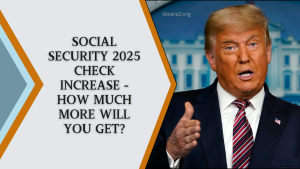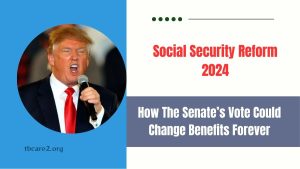As South Africa approaches 2025, the government is poised to implement a transformative shift in its social welfare policy by replacing the Social Relief of Distress (SRD) grant with a Universal Basic Income (UBI).
This initiative aims to provide financial stability to citizens aged 18 to 59, marking a significant step toward reducing poverty and inequality nationwide.
Contents
Universal Basic Income in South Africa
The African National Congress (ANC) is spearheading the transition from the SRD grant to a permanent and comprehensive UBI program.
The goal is to offer unconditional cash benefits to all qualifying adults, ensuring that the amount is sufficient to meet individual financial needs without hindering economic growth.
This move aligns South Africa with a select group of countries that have adopted UBI to support their citizens.
Eligibility Criteria for Universal Basic Income
To qualify for South Africa’s UBI, applicants must meet specific requirements:
- Residency: Applicants must be South African citizens or permanent residents residing in the country throughout the application process.
- Age: Eligibility is limited to individuals aged 18 to 59.
Unlike the SRD grant, the UBI does not impose income or asset limits, making it accessible to a broader segment of the population.
Benefits of Universal Basic Income
Implementing UBI offers several advantages:
- Financial Support: Provides all eligible individuals with a fixed amount of financial assistance, distributed equally by the government without any conditions.
- Poverty Reduction: Aims to decrease vulnerability among disadvantaged groups, addressing hunger and economic disparities.
- Economic Stability: By ensuring a basic income, the program seeks to stimulate economic activity and promote social justice.
Introduction of New Grants
The SRD grant was initially introduced as a temporary measure during the pandemic to assist citizens in meeting basic needs.
Recognizing its impact, the government plans to transition to UBI to provide more consistent and comprehensive support. This shift reflects a commitment to alleviating long-standing social and economic inequalities.
| Aspect | SRD Grant | Universal Basic Income | Eligibility | Implementation Timeline |
|---|---|---|---|---|
| Nature | Temporary relief measure | Permanent financial support | Citizens aged 18 to 59 | Expected by end of current year |
| Eligibility Criteria | Means-tested, specific groups | Universal for eligible age group | No income or asset limits | Nationwide rollout planned |
| Benefit Distribution | Conditional, based on specific needs | Unconditional, equal distribution | Unconditional cash benefits | Full execution on a national level |
| Government’s Objective | Short-term assistance during crises | Long-term poverty alleviation strategy | Addressing inequality and poverty | Transition from SRD to UBI |
In conclusion, South Africa’s move toward implementing a Universal Basic Income represents a significant evolution in its social welfare framework.
By providing unconditional financial support to eligible citizens, the government aims to foster economic stability and reduce poverty, setting a precedent for comprehensive social assistance programs.
FAQs
What is the primary goal of South Africa’s Universal Basic Income?
The primary goal is to provide financial stability and reduce poverty among citizens aged 18 to 59 by offering unconditional cash benefits.
How does UBI differ from the SRD grant?
Unlike the means-tested and temporary SRD grant, UBI offers permanent, unconditional financial support without income or asset limitations.
Who is eligible for the Universal Basic Income?
Eligibility is limited to South African citizens or permanent residents aged 18 to 59 residing in the country during the application process.
What are the anticipated benefits of implementing UBI?
UBI is expected to reduce poverty, provide financial stability, stimulate economic activity, and promote social justice by offering equal financial support to all eligible individuals.







